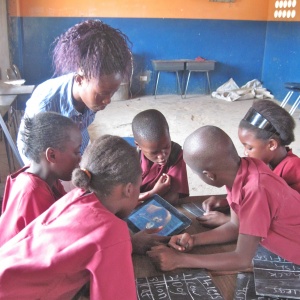OER4Schools/Facilitation/Handsignals
From OER in Education
< OER4Schools | Facilitation
| Resource details | |
| Title | Handsignals |
| Topic | |
| Teaching approach | |
| Learning Objectives | |
| Format / structure | |
| Subject | |
| Age of students / grade | |
| Table of contents | |
| Additional Resources/material needed | |
| Useful information | |
| Related ORBIT Wiki Resources | |
| Other (e.g. time frame) | |
| Files and resources to view and download | |
| Acknowledgement | This resource is part of the OER4Schools programme. |
| License | |
Handsignals can make meetings run more smoothly and help the facilitator see emerging agreements. Three simple signals should suffice:
- Raise a hand when you wish to contribute to the discussion with a general point.
- Raise both hands if your point is a direct response to the current discussion. This allows you to jump to the head of the queue, so use it wisely and discourage overuse!
- Silent applause - when you hear an opinion that you agree with, wave a hand with your fingers pointing upwards. This saves a lot of time as people don't need to chip in to say "I'd just like to add that I agree with..."
From [1], Seeds For Change briefings and guides are @nti-copyright. Please feel free to copy, adapt and distribute them as long as the final work remains @nti-copyright. We encourage groups to use our briefings and guides, and to use the ideas in them. You can copy, paste, rewrite, edit, translate and use our writings in your own work. If you use our work then please make your own work @nti-copyright too, so that others may also benefit in the same way you have.


